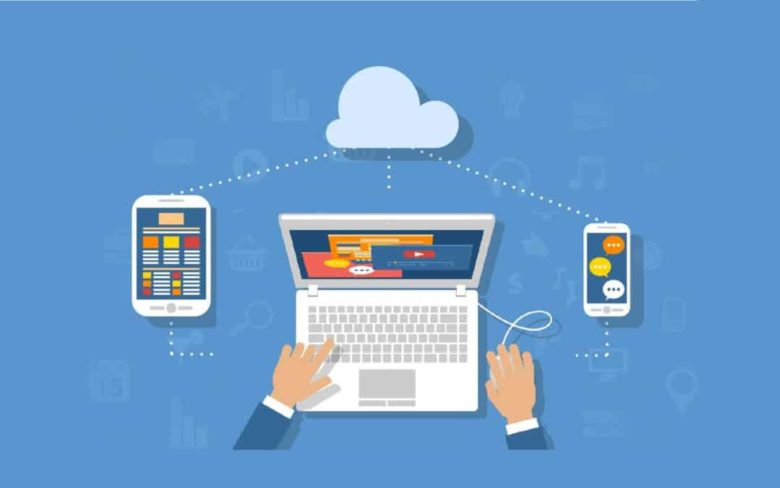DropBox. Slack. Canva.
If you have used any of these websites before, you have used cloud technology.
Cloud makes software consumption so simple. Moving in-house software to the cloud has activated so many benefits; cloud has become a de facto first choice of a lot of businesses.
However, despite the use of cloud being so common, there are some reservations we may still see about its adoption.
Let’s use this article to provide some clarity into the definition and the benefits of Customer Relationship Management (CRM) offered through cloud.
What is Cloud CRM?
Cloud computing that allows users to consume software and its services over the internet without having to worry about in-house installation.
The data stays on cloud servers and the software itself stays partly on cloud servers and partly in your browser.
For example, Canva hosts a bunch of images on its servers while displaying their thumbnails on your browser. As you request to open the thumbnail, the Canva software code in your browser downloads the original image by accessing the database on the server over the internet and gets it ready for editing.
You don’t install Canva on your computer or as an extension on the browser. The software is accessible as a service through your browser.
Because of the flexibility, low costs, and convenience offered by it, CRM (Customer Relationship Management) consumers also prefer to use the Cloud model. In fact, Cloud CRM and Marketing Automation software have become a highly-competitive industry of its own.
As creators of such software keep adding more unique and attractive features for its users, cloud will become a staple way of software consumption.
What are the advantages of using Cloud CRM?
Cloud CRM is definitely the stuff of dreams for a Sales manager who likes his software lean. And now this dream has become a reality that rewards its users in many ways.
In this section, we look at the amazon benefits of a Cloud CRM.
- Low barrier to entry
Because Cloud CRM models are subscription-based, all you need to start using it is to buy any of its plans. After you decide which Cloud CRM software is suitable for your company and sign up for it, you will receive your credentials and other usage-related details in an email. Click the link in that email, log into the software on the page that opens, and you can instantly start creating/importing your email lists.
No large installer files are downloaded and no client-server configuration is required. It’s as simple as:
- Select a Cloud CRM
- Log into the system
- Start using it.
- Truly seamless availability
Unlike in-house software, Cloud CRM does not require any special proxy or firewall configurations on your internal systems. Everyone accesses the software through the internet with their personal and secure credentials for logging in.
What’s more?
It’s the same everywhere you have internet. Your sales agents can roam all over the world presenting proposals and acquiring clients while still accessing the Cloud CRM in exactly the same way everywhere they go!
The biggest benefit is mobile access. Many Cloud CRM companies also offer a mobile app that allows them to view all data (and modify some data) over their mobile phones. This creates a truly mobile and incredibly fuss-free CRM experience for your Sales team.
- Integration with other business software
Modern Cloud CRM providers have matured their products a great deal thanks to the healthy competition in the market. They operate with the goal of not only making your CRM experience better, but also to make your business life a whole lot easier.
In this regard, many Cloud CRM allow you to integrate with other business software such as Contact Management Systems or even Enterprise Resource Planning (ERP) software. This integration increases the professional satisfaction and on-the-job engagement of your internal teams as the access of all the data becomes a lot more efficient
- Enhanced security, maintenance, and backup
Local installations require a lot of time, manpower, and money to secure, maintain, and backup their data.
If you choose a Cloud CRM, your provider will take care of all three crucial matters.
Wondering whether you can rely on them?
Consider this:
Handling your data and all of its critical aspects is their job. They wouldn’t be in this business if they couldn’t guarantee the security of their customer’s data.
You may ask their sales team to clarify all security and admin related matters before, during, after the demo.
Cloud CRM is always better for your company
Traditional in-house installations are certainly viable for large enterprises that have the resources to host the data from inside their organization.
For small businesses, Cloud-based CRM in inarguably the best possible solution as we have seen in this article.






